Jungheinrich Forklift Battery Replacement Guide: Upgrade Your Lead-Acid Battery to Lithium for Better Performance
Jungheinrich forklifts are known for their German engineering excellence and reliability, making them a top choice in warehouses and logistics operations across the United States. Many companies still operate older Jungheinrich forklifts equipped with traditional lead-acid batteries. For these users, replacing lead-acid batteries with modern lithium batteries offers an economical and efficient way to extend forklift life and boost operational efficiency.
Recent industry data from Modern Materials Handling (2024) shows that over 40% of newly manufactured Jungheinrich forklifts come equipped with lithium batteries, a number expected to grow rapidly in the coming years. This shift underscores the industry’s trust in lithium technology and signals a fast transition toward more efficient, low-maintenance power systems. For operators still running lead-acid batteries, upgrading to lithium has become a critical step to maintain competitiveness.
Why Choose Battery Replacement Over Buying New Forklifts?
Jungheinrich forklifts are built to last, and many older units remain mechanically sound despite their aging batteries. Compared to purchasing a brand-new forklift, swapping out lead-acid batteries for lithium batteries is far more cost-effective and reduces downtime. Especially in the U.S., where many Jungheinrich forklifts have been in service for years, battery replacement extends equipment life without the expense of full fleet replacement.
The Hidden Costs and Limitations of Lead-Acid Batteries
While lead-acid batteries have been industry standard for decades, their operational drawbacks create hidden expenses and efficiency barriers:
- Long charging and cooling times — often 6 to 8 hours plus mandatory cooling, causing forklifts to sit idle.
- Frequent maintenance — regular watering and equalization increase labor and risk.
- Rapid capacity fade — shorter battery lifespan leads to more frequent replacements.
- Low energy efficiency — energy lost as heat increases operational costs.
- Heavy weight — reduces forklift maneuverability and runtime.
These factors directly impact productivity and operating expenses, limiting warehouse competitiveness.
Advantages of Forklift Lithium Battery Upgrades
Lithium forklift battery technology brings transformative benefits beyond simple replacement:
- Fast and opportunity charging — lithium batteries can be charged quickly in short breaks (“opportunity charging”), minimizing forklift downtime.
- Maintenance-free operation — no watering or equalization needed, cutting labor costs.
- Long cycle life — lithium batteries typically last over 3,000 charge cycles, greatly reducing replacement frequency (source: DOE Energy Efficiency & Renewable Energy, 2022).
- Stable power output — consistent voltage ensures smooth forklift performance and safer operation.
- Lightweight design — enhances forklift mobility and energy efficiency.
These advantages translate to significant long-term cost savings and operational improvements.
Battery Specifications for Jungheinrich Forklifts
We offer three main lithium battery voltage options tailored for different forklift models and workload requirements:
- 25.6V batteries — ideal for light pallet trucks and pedestrian stackers.
- 51.2V batteries — suited for mid-sized warehouse forklifts and order pickers.
- 73.6V batteries — designed for heavy-duty counterbalance forklifts like Jungheinrich’s EFG series.
Our lithium batteries are sourced from trusted lithium battery suppliers in the USA, guaranteeing reliable performance and compliance with U.S. regulations. All our forklift lithium batteries come equipped with advanced Battery Management Systems (BMS) for real-time monitoring and optimal safety.
Addressing Common Customer Pain Points
- Reduce forklift downtime — fast and opportunity charging enable continuous operation during busy shifts.
- Lower maintenance burden — lithium batteries simplify upkeep and reduce failures.
- Extend equipment life — upgrading batteries restores performance and delays forklift replacement.
- Optimize total cost of ownership (TCO) — energy savings and longer life make lithium upgrades financially smart.
We provide not only high-quality batteries but also expert technical support and after-sales services to ensure smooth upgrades.
Frequently Asked Questions (FAQ)
Q1: Why should I replace the lead-acid battery in my Jungheinrich forklift?
Older lead-acid batteries have limitations in charging speed, maintenance, and lifespan. Replacing them with lithium batteries improves runtime, reduces costs, and extends forklift life.
Q2: How much does a lithium battery upgrade improve forklift performance?
Lithium batteries offer stable voltage and higher energy density, resulting in better power delivery and operational continuity. Fast and opportunity charging drastically reduces downtime.
Q3: How long does the battery replacement process take?
Professional teams typically complete battery swaps quickly to minimize operational disruption.
Q4: Which lithium battery voltage is right for my forklift?
We recommend 25.6V for light-duty trucks, 51.2V for mid-sized forklifts, and 73.6V for heavy-duty counterbalance models, tailored to your application.
Q5: Is upgrading to lithium batteries cost-effective?
Although initial costs are higher, longer lifespan and reduced maintenance translate to lower total cost of ownership.
Q6: Are lithium batteries safe?
Modern lithium batteries feature advanced BMS for temperature and voltage control, minimizing risks when properly handled.
Q7: What is “opportunity charging”?
Opportunity charging means using short breaks during shifts to quickly charge the battery, keeping forklifts running longer without long downtime.
Q8: Will upgrading the battery affect my forklift’s warranty?
Typically, professional lithium battery replacements don’t void warranties, but always check your specific terms.
Q9: Do I need new chargers for lithium batteries?
Some existing chargers may be compatible, but dedicated lithium chargers maximize fast charging benefits.
Q10: How do I know when to replace my lithium battery?
Monitor battery cycles and capacity; lithium batteries generally last over 3,000 cycles before performance degrades.
Conclusion
With Jungheinrich steadily increasing the share of lithium battery-equipped forklifts, the U.S. market is rapidly moving toward lithium-powered operations. For businesses operating older Jungheinrich forklifts with lead-acid batteries, timely lithium upgrades offer a strategic advantage—extending equipment life, boosting productivity, and cutting costs.
If you want to explore the best lithium battery replacement options for your Jungheinrich forklifts, contact us. Our experts will help you select and install the ideal battery system tailored to your needs.


